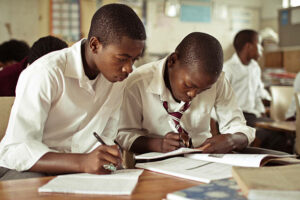African governments are grossly shortchanging investment in teachers, school infrastructure, teaching and learning resources, while privatisation and commercialisation of and in education have exponentially increased since the outbreak of COVID-19.
This is according to the Education International (EI) Africa Region conference handbook presented recently in South Africa.
EI said the expansion and intensification of the Go Public! Fund Education campaign in Africa public funding was crucial to achieve quality education in line with Sustainable Development Goal (SDG) 4, adopted by the United Nations in 2015.
“The 2030 Framework for Action committed the governments to allocate at least 20% of the national budget or 6% of Gross Domestic Product (GDP) to education,” reads the report, in part.
However, despite the commitments, on average, African countries are still coming short of their pledges as many are allocating only 3.8% of GDP to education.
“Launched on 24 January 2023, the ‘Go Public! Fund Education campaign seeks to continuously urge governments to prioritise education financing by pushing back on austerity measures in line with EI’s 2015 Resolution, fighting privatisation and commercialisation of education, challenging education budget cuts and working to create quality, inclusive public education systems supportive of the teaching profession,” said EI.
Education International said the teaching profession was one of the pillars anchoring the safeguarding of democracy and human rights.
The handbook noted that International Human Rights Law laid down the obligations of Governments to refrain from certain acts to protect human rights and fundamental freedoms of individuals or groups.
“Article 23 of the Universal Declaration of Human Rights states that “Everyone has the right to form and to join trade unions for the protection of his [or her] interests. The same rights are protected in Conventions 87 and 98 of the International Labour Organisation (ILO),” said EI.
“Despite the fact that many countries have ratified these instruments, there are serious violations of human and trade union rights in many African countries.”


